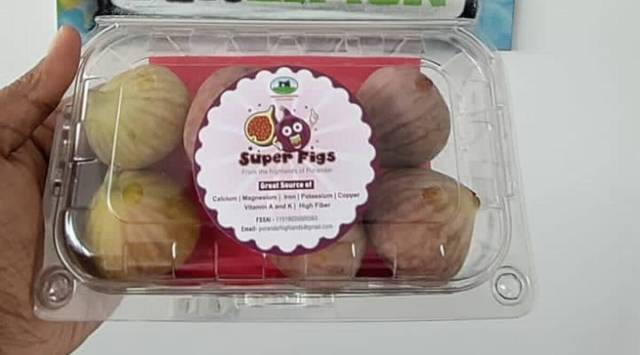Trial exports a success, GI-tagged Purandar figs from Maharashtra headed to Middle East, Hong Kong
Purandhar Highlands expects to ship around 500 kg to 1,000 kg of figs to these countries, company chairman Rohan Ursal said.
 Figs from Purandar have been accorded the GI tag, much like the Alphonso mangoes from Maharashtra's Konkan coast. (File)
Figs from Purandar have been accorded the GI tag, much like the Alphonso mangoes from Maharashtra's Konkan coast. (File) After successful trial exports, GI-tagged figs from Purandar taluka in Maharashtra’s Pune district are now set to make their way to the Middle East and Hong Kong.
Purandar Highlands, the farmer producer company (FPC) exporting the figs, said it is set to begin the process of sending commercial consignments to the Middle East and Hong Kong from next week. “This follows our successful trial exports of smaller quantities,” Rohan Ursal, chairman of the company, said.
After successful exports to Germany last year, Ursal said they carried out trial shipments to Rotterdam in The Netherlands and Hong Kong. To date, only figs from Brazil, Turkey or South Africa have been sold in these countries and this was the first time that figs from India reached their shores, Ursal added. “The feedback we got was very encouraging. We would soon be starting commercial shipments to Hong Kong and the Middle East,” he said. The company expects to ship around 500 kg to 1,000 kg (1 tonne) of fruit to these countries.
Figs from Purandar have been accorded the GI tag, much like the Alphonso mangoes from the state’s Konkan coast. Grown in a naturally dry area, figs from Purandar are special as they have a unique flavour and texture. However, due to its highly perishable nature, the fruit has failed to make its presence felt in domestic and international markets.
According to Ursal, a major stumbling block in terms of access to export markets is the difficulty in obtaining Good Agricultural Practice (GAP) certificates. This, he says, is because of ‘label claim’ or the minute detailing of inputs and growing processes for the produce. The label claim is a must for obtaining a GAP certificate, which in turn, is mandatory for most developed countries. Development of the procedure and usage of specific chemicals is a costly and long-drawn process, which Ursal admits, has not been done.
In order to address this issue, Purandar Highlands has tied up with Bayer Crop Sciences to develop such practices for their farmers. Using the specially developed BAY GAP app, the company will be training around 10-12 farmers in the area to develop a special protocol for the crop. “Ours would be the first FPC to tie up with the company for this. Once we get the protocol developed, it will help our farmers to access better prices,” he said.
Purandar Highlands, which handles figs and custard apples, has now ventured into products like spreads and jams, targeting retail markets.













